|
Scripture Readings: 1 Samuel 2:18–20, 26 | Psalm 148 | Colossians 3:12–17 | Luke 2:41–52
“He said to them, ‘Why were you searching for me? Did you not know that I must be in my Father’s house?’” (Luke 2:49). Merry Christmas! That’s one of the things that I love about churches like ours that follow the Christian calendar: Christmas is not just one day, it’s a season of 12 days! And on this first Sunday of the Christmas season we celebrate the Feast of the Holy Family: giving thanks for the common life that Jesus, Mary, and Joseph shared together… as God raises up a humble human household to participate in His plan to redeem the world, and draw all peoples into His heavenly family. We don’t have that many stories of the family life of Jesus, and our Gospel reading this morning gives us the only one we have from when our Lord was a child… and it’s kind of a strange episode: the holy family makes a pilgrimage to Jerusalem to celebrate Passover. When Mary and Joseph leave with the rest of the pilgrims, Jesus stays behind in the Temple. His parents eventually notice He’s missing, and desperately search for Him for three days. But when they find Him, Jesus does not respond as we might expect. He’s not worried, even though He had been left alone for all that time. And He’s not contrite either, seemingly unconcerned by His parent’s feelings, or their expectations of Him as their son. Instead, He seems confused that they didn’t know where to look for Him. That they didn’t know that He would be caught up in what was happening in His Father’s house. It’s an odd part of His story, but Luke shares it with us because he wants us to understand something about this boy and what He’s all about. And interestingly enough, it might help us if we reflect on the story of another young boy from Israel’s early days: the story of Samuel, which we heard briefly in our Old Testament reading this morning. Samuel was born before Israel had any kings. When they were supposed to be guided by Israel’s priesthood, but time and again we’re told that the people kept turning away from God’s ways, and would “do what was right in their own eyes”, which kept leading them to disaster. In our reading we catch a glimpse of the boy Samuel, being raised by Eli, the priest, who served with His sons in the Tabernacle: the sacred Tent where sacrifices to the LORD God were made, and where, before the Temple was built, God’s presence dwelt with His people. Samuel had been dedicated by his mother to the LORD because the LORD had answered her prayer and had given her a son. Samuel served God faithfully even as a child. Unfortunately, the same could not be said for Eli’s own sons, who blatantly disgraced the priesthood, and took advantage of those who came to worship God. Our lectionary skips this part of the story, but we are supposed to see this huge contrast between the boy Samuel and Israel’s unfaithful leaders: 1 Samuel 2:22-25. “Now Eli was very old. He heard all that his sons were doing to all Israel, and how they lay with the women who served at the entrance to the tent of meeting. He said to them, “Why do you do such things? For I hear of your evil dealings from all these people. No, my sons; it is not a good report that I hear the people of the Lord spreading abroad. If one person sins against another, someone can intercede for the sinner with the Lord; but if someone sins against the Lord, who can make intercession?” But they would not listen to the voice of their father; for it was the will of the Lord to kill them.” The early chapters of Samuel’s story play out this turn of events: the downfall of the corrupt leaders of God’s people, alongside the rise of a faithful miracle-child who serves by helping God’s people to turn back to their LORD. Through this boy Samuel, who from birth had been caught up in the work of the LORD, the Living God was drawing His scattered people back to Himself, so that they all might walk in the ways of His holy love. Returning now to Luke’s Gospel with the story of Samuel in mind, this strange story of Jesus as a boy in the Temple starts to take on a whole other dimension. The picture we’re given is that this young boy is completely caught up in the things of God… completely at home in the House of the LORD, “sitting among the teachers, listening to them and asking them questions. And all who heard him were amazed at his understanding and his answers” (Luke 2:46-47). Unlike Samuel, Jesus, had grown up far from Jerusalem, and the Temple, but as we know Jesus Himself was the ultimate miracle child… conceived by the Holy Spirit, and born of the Virgin Mary… and more than that, as John’s Gospel tells us, this child is God incarnate… God in human flesh… this boy is Himself the meeting place of Heaven and Earth, God’s dwelling among us… the reality that the Temple and Tabernacle pointed to. And like Samuel, Jesus was growing up at a time when Israel’s leaders, and in particular it’s priesthood had become corrupt, failing to serve the LORD or His people faithfully. The rise of Jesus, for Luke, will coincide with the failure and fall of the faithless guides of God’s people, who constantly clash with our Lord in later days, and who will lead the conspiracy that brings Christ to the cross. But again, we know that there’s more going on at the cross than meets the eye. It was the way that Jesus broke the power of death, and freed us from the grip of sin… opening up the way of God’s New Life when after being lost to us for three days, Jesus rose again from the grave. And again, like Samuel, Luke wants us to see that Jesus, even as a young boy, is the one through whom the Living God Himself is at work rescuing His people, returning their hearts to Him, so that we might walk in His holy ways. In Jesus, the Living God has come and dwells among us to draw us to Himself… to reconcile us, and restore us as His faithful people… to make us, to make you and I, a kingdom of priests, and holy nation, a faithful family, together with our sisters and brothers from every nation, walking together in the holy love of the Lord forever. We live in a time when we’re all encouraged to just “do what’s right in our own eyes”, but Christ has come to open up for us the way to God’s New Life: so that we too might be caught up in what God is up to… living today as God’s faithful family, sharing in His holy love. In our New Testament reading today, St. Paul tells us what this looks like in practice. Let’s listen again, and let the message really sink in: “As God’s chosen ones, holy and beloved, clothe yourselves with compassion, kindness, humility, meekness, and patience. Bear with one another and, if anyone has a complaint against another, forgive each other; just as the Lord has forgiven you, so you also must forgive. Above all, clothe yourselves with love, which binds everything together in perfect harmony. And let the peace of Christ rule in your hearts, to which indeed you were called in the one body. And be thankful. Let the word of Christ dwell in you richly; teach and admonish one another in all wisdom; and with gratitude in your hearts sing psalms, hymns, and spiritual songs to God. And whatever you do, in word or deed, do everything in the name of the Lord Jesus, giving thanks to God the Father through him.” It can be easy to think of Christmas as a story of the promised child, and the holy family gathered serenely around the manger. But our Scriptures today remind us that this promised child has a clear purpose: to bring about the restoration of Israel, and all nations… to draw all peoples everywhere into the family of God… to offer His life on the cross as the sacrifice to deal with all our sins, and set us free to truly be God’s faithful children forever. As Christians, we have been adopted into the family of God, sharing in the New Life of Jesus Christ through His Spirit at work in us. So, this Christmas season, may we remember that Christ was born into our human family, so that in Him, all of us might live even today as God’s faithful children. Amen.
0 Comments
Jesus Christ is born, let all the world rejoice! Merry Christmas! Today, the first Sunday of the Christmas season, we celebrate the Feast of the Holy Family: giving thanks for the shared life of Jesus, Mary, and Joseph, and that God has given us His Son so we might become His children. It is a beautiful message of the Church that God has chosen to work through human families, as broken and messed up as they can be at times, to bring about His rescue mission for the entire world. Here is a surprisingly beautiful song based on the family tree of Jesus according to the Gospel of Matthew by the band Poor Bishop Hooper entitled Christ. Our service of Morning Prayer, Bulletin, and Sermon can be found here: And our Songs can be found here: Scripture Readings: Isaiah 62:6–12 | Psalm 97 | Titus 3:4–7 | Luke 2:1–20
“But the angel said to them, “Do not be afraid; for see—I am bringing you good news of great joy for all the people: to you is born this day in the city of David a Savior, who is the Messiah, the Lord.” (Luke 2:10-11). Merry Christmas. Today’s the day. All throughout the season of Advent, and for some of us, even longer, we have been looking forward to today with building anticipation. The day we celebrate the birth of Jesus Christ our Lord, and all that His birth means for our lives and for our world. But I know if we’re being honest, this Christmas has also been really challenging. We are still in the midst of a global pandemic, with cases in our region rising rapidly… making it almost impossible to celebrate in the ways we long to. All of us are facing a great deal of uncertainty as we try to do our part to protect ourselves, our loved ones, and neighbours… having to make major changes to our everyday lives, not to mention our treasured traditions. Though we still have lots to celebrate today, far more than we likely imagine, it’s safe to say this isn’t the kind of Christmas season that we would have planned. But honestly, Christmas has been that way since the very beginning: a surprising celebration that none of us would have planned. Take Joseph and Mary: First came the life-changing visits from the Angel Gabriel, telling them that Mary was going to give birth to God’s Messiah, the Christ. But then, just as the baby was about to be born, the Emperor, off in faraway Rome, decides to call for a census and suddenly they have to make the journey to Bethlehem. I’m sure they would rather have stayed at home in Nazareth surrounded by family and friends. And they would never have planned to stay in a stable on the night that Mary was to give birth to her firstborn child. And what about the shepherds? They had no clue about the promised child… they had their hands full enough with the business of daily life… with simply making a modest living, which was getting harder and harder to do. The shepherds were completely caught off guard by the angels and heavenly choir… but were compelled to drop everything and run to Bethlehem to see this ‘Good News for all people’ the angels spoke of with their own eyes. But even though Mary and Joseph and the shepherds would never have planned it that way… even though it all seemed like chaos, inconvenience, and surprise, that first Christmas was the work of the wonderful plans of the Living God. God planned for the promised child to be born in Bethlehem, in King David’s city, to bring hope to His oppressed people, fulfilling His promises and telling them that their Saviour King had come at last. And God planned for His Son to be born among those who have no place… among those who are refused welcome… among the outsiders, and all those in need. The Prince of Peace was born as one who is poor, who would Himself know rejection and need, that He might lift up the lowly, and redeem all who place their hope in Him. God planned for the Good News of the birth of the Messiah to be shared first with those whose lives had lost almost all sense of joy. To those ground down by the weight of the world, the LORD gave a glimpse of heavenly beauty, music, and light… lifting their hearts to share in a vision of life beyond anything they could imagine. And God planned for these humble shepherds to be drawn near to Mary and Joseph. To come together with those who had once been strangers and share in this gift of God’s love for our world… that they might then go and share this Good News with everyone else as well. Today we can celebrate even in the midst of our struggles, our disappointments, and our fears, because we remember that the birth of our Saviour Jesus Christ came about through the wonderful plans of the Living God, who shares His love with our lonely world… who shines His healing light in the midst of the deepest darkness… and announces Good News of great joy especially when we need it most. Jesus Christ is born! The Living God is with us! May we rejoice and celebrate this wonderful truth today. Amen. In this sacred moment we celebrate the birth of Jesus Christ, who is Emmanuel, God-With-Us, wherever we may be. May this service of Lessons & Carols stir up within us the Hope, Peace, Joy, and Love that God offers us through Jesus His Son. Here are some links to the Carols listed in our service, found on Youtube: Christmas DayMerry Christmas! Here is our Bulletin & Sermon for Christmas Day
Scripture Readings: Micah 5:2–5a | Psalm 80:1–7 | Hebrews 10:5–10 | Luke 1:39–55
“Surely, from now on all generations will call me blessed; for the Mighty One has done great things for me, and holy is his name.” (Luke 1:48-49). What do you want for Christmas? If we ask some of our younger members of St. Luke’s this familiar question, we might expect to hear, with some excitement, about their gift wish list… the presents that they’re hoping to receive from those who love them. If we ask this question to some of our less-young Christian brothers and sisters, the answers might get a bit harder to gift wrap, but not at all less longed for… like spending time with family and friends, and other festive traditions. This year, no matter our age, I think we’re all longing for some normality this Christmas… for being able to celebrate this special time of year with freedom and ease. Not anxious about each other’s health… or the stability of our whole community. I think it’s safe to say we’re all longing for those seemingly simpler days we all took for granted. Even so… even now as we head into our second COVID Christmas, we have much to be grateful for, and much to look forward to… especially as we consider the Good News that Advent and Christmas have to share. Today we mark the fourth Sunday of Advent, the last before we celebrate our Saviour’s birth, and today we are asked to contemplate the theme of love… a word that we often associate with giving, and which stands at the centre of the sacred story we Christians believe. In our reading today from the first Chapter of the Gospel of Luke, we hear of God’s gift of love… to Mary, to Israel, and to us all. In today’s passage we heard how Mary travels to see her cousin, Elizabeth, right after a visit from the Angel Gabriel, who tells her that she will give birth to God’s Messiah, the Christ. Elizabeth herself was expecting her own miracle child, a gift to her and her husband Zechariah in their old age… a baby destined to take part in preparing his people to get ready for God’s salvation, and the coming Saviour. We heard how as soon as Mary spoke, the baby inside of Elizabeth jumped for joy… and how Elizabeth confirmed the Angel’s message to Mary, calling her blessed. And in response, we heard Mary bursts out in praise of God: “My soul magnifies the Lord,” she says “and my spirit rejoices in God my Savior, for he has looked with favor on the lowliness of his servant. Surely, from now on all generations will call me blessed; for the Mighty One has done great things for me, and holy is his name.” (Luke 1:46-49). Why would she respond in this way to the words of her cousin Elizabeth? The bishop and scholar N.T. Wright offers us this helpful insight: “Mary and Elisabeth shared a dream. It was the ancient dream of Israel: the dream that one day all that the prophets had said would come true. One day Israel’s God would do what he had said to Israel’s earliest ancestors: all nations would be blessed through Abraham’s family. But for that to happen, the powers that kept the world in slavery had to be toppled… God would have to win a victory over the bullies, the power-brokers, the forces of evil which people like Mary and Elisabeth knew all too well, living as they did in the dark days of Herod the Great, whose casual brutality was backed up with the threat of Rome. Mary and Elisabeth, like so many Jews of their time, searched the scriptures, soaked themselves in the psalms and prophetic writings which spoke of mercy, hope, fulfilment, reversal, revolution, victory over evil, and of God coming to the rescue at last.”[1] She was still wrapping her head around the story that she was being drawn into, but the beautiful truth had begun to sink in: the Living God was giving to her and her people the gift they had all been longing for… God’s rescuing love was on its way through the child growing in her womb. Though insignificant in the eyes of the world, she now knows she is deeply blessed, “for the Mighty One has done great things” for her, and through her. She didn’t have to see things this way, or to respond with words of praise. In fact, from the outside it might seem like the Mighty One had actually ruined her future. How would she explain her pregnancy to her fiancé, her family, and neighbours? What about all of her own plans for a simple, normal life? Even so, even with all the complications and upheaval, Mary believed… she trusted the LORD’s word and had faith in His rescuing love, even if it would change everything. And as Elizabeth had said: “blessed is she who believed that there would be a fulfillment of what was spoken to her by the Lord.” None of us will bear and give birth to the Messiah like Mary, but we may all have our lives turned upside down by His rescuing love… raising us up beyond expectation… humbling us as well… experiencing the goodness of God at work within us, and through us in ways we never would have asked for or imagined. That’s because love goes way beyond giving us what we want. Love gives us what we need… even, and maybe especially, when we have no clue what that is. Everything that Mary said in our reading today was true of course, but she had no clue at this point how God’s rescue would actually be accomplished. She knew that her baby would bring about the salvation she and her people longed for, but not that it would completely consume the life of her child. Like her people, Mary had expected God’s Messiah to come and bring victory, to rescue Israel right away from all its enemies. But as the Gospel story goes on, we find that Jesus, God’s true Messiah, actually gives up His life to rescue His enemies… dying not only for His own people, who had rejected and abandoned Him, but also to reach out and rescue all the peoples of the earth… including oppressive and ungodly nations, like the Roman Empire… and places as far away in distance and time as Gondola Point. Jesus, God’s Messiah, gave His own body to be broken, and His blood to be shed to draw us all together in His rescuing love… even when it was the furthest thing from our hearts and minds. In his letter to the Christians in Rome, St. Paul the Apostle wrote these life-changing words: “For while we were still weak, at the right time Christ died for the ungodly. Indeed, rarely will anyone die for a righteous person—though perhaps for a good person someone might actually dare to die. But God proves his love for us in that while we still were sinners Christ died for us. Much more surely then, now that we have been justified by his blood, will we be saved through him from the wrath of God. For if while we were enemies, we were reconciled to God through the death of his Son, much more surely, having been reconciled, will we be saved by his life. But more than that, we even boast in God through our Lord Jesus Christ, through whom we have now received reconciliation. (Romans 5:6-11). God proves His love for us in that Jesus His Son gave His life to save us while we were sinners… while we still wanted nothing to do with Him, God wanted us to be with Him. This passage from Romans has played a huge role in my own story of receiving God’s rescuing love… which He first made known to me at the moment I felt the least lovely. The Good News of Jesus Christ is that God really loves the real you… the real me… our real family members, and friends, our loved ones, and strangers… the people who hate us, or drive us to distraction… God loves them all too. There’s plenty we all do that He doesn’t love… and He longs to set us free from all that stuff… but none of it keeps Him from loving us all, and offering us New Life. This may not be what we had expected or asked for, but this is what the Living God has given to us in Jesus… what He knows you and I and everyone around us needs, not just for Christmas, but always. And what does it look like to receive the gift of the rescuing love of God? That’s actually what the whole Christian life is all about: Again and again encountering and believing in the love of God given to us in Jesus Christ our Lord… and empowered by His Holy Spirit, sharing His love with our world. So whatever this Christmas looks like for us… and whatever else happens after it, may we believe and be transformed by the love of God in Jesus Christ. May we be convinced that in Jesus, God has given us everything we truly need. And may we start to see everybody around us as beloved by the Lord, who gave up His life on the cross, and rose again from the dead so that they too can be reconciled to God, and receive the blessed New Life in Him. Amen. [1] Tom Wright, Luke for Everyone (London: Society for Promoting Christian Knowledge, 2004), 15. Today we celebrate the fourth week of Advent: a season of anticipation and preparation for the coming of Jesus Christ, both in His birth at Christmas, and in His future return to reign forever over a renewed creation. Many artists and musicians have been inspired by this season, exploring its themes and message of Hope, Peace, Joy, and Love, leading us to Jesus. I hope you enjoy this link to a song based on the story of Joseph (Matthew 1:18-25), entitled Love by the band Poor Bishop Hooper. Our service of Morning Prayer, Bulletin, and Sermon can be found here: Our Advent Hymn can be found here: And our other Songs can be found here: Scripture Readings: Zephaniah 3:14–20 | Isaiah 12:2–6 | Philippians 4:4–7 | Luke 3:7–18
“John said to the crowds that came out to be baptized by him, “You brood of vipers! Who warned you to flee from the wrath to come? Bear fruits worthy of repentance.” (Luke 3:7-8a). Today we mark the third Sunday of the season of Advent, and we also reflect on the theme of Joy: which along with Hope and Peace is so essential… but often misunderstood. And what a great passage from our Gospel reading to help us contemplate joy, am I right? I mean, what brings ‘joy’ to mind quicker than calling people a “brood of vipers!” But as strange as it may seem, John’s passionate words of warning do have quite a lot to tell us about joy… about the particular understanding of joy that Christians have, and where we can find it. I think it might be helpful to remember right off the bat that we can all to easily confuse joy with happiness. Both words can be used to describe a positive state or experience… a ‘good feeling’, that most of us want more of in our lives. But many people today think about and pursue happiness in ways that have little to do with what the Christian family would recognize as joy. This time of year, there can be all sorts of pressure to create a ‘happy holiday’… to pour ourselves into pursuing the things that are supposed to make us feel great: special meals, gifts and gatherings, practicing treasured traditions… all the things that pull at our heartstrings, and that bring a smile to our faces. At least for a while. At least until the food runs out, and the dishes start pilling up… ‘til the gifts are all given, and the guests are starting to get on our nerves a bit. Now I’m no grinch. I really love Christmas, and I’m looking forward to sharing in all these good things. But we all know the good feelings they bring don’t last forever. They’re lovely… but temporary. And so happiness has often become connected with feeling good in the moment. With experiencing or holding onto an enjoyable state ‘hear and now’. Which means we have to keep looking for more ways to be happy, or maintain the good times as long as we can. To make our ‘now’ the best it can be, again and again. This pattern goes way beyond the hype around the holidays. We can see something similar in the way people talk about ‘seizing the day’: striving to ‘make the most of each moment’, and to just pursue whatever makes them happy. Again, there’s nothing wrong with looking for fulfillment, or living each day intentionally. It’s probably better than wasting the time and energy we’ve been given. But I think there is often the problem of becoming too focussed on the ‘here and now’… of losing sight of what’s come before, and of where we are headed. When we’re caught up in trying to find happiness over and over again, we can forget or ignore the bigger story, and our own place within it. But what I want to call Christian Joy is not based on our feelings or experiences ‘here and now’… this joy a gift that comes to us from the Holy Spirit, and that is deeply connected to our faith: to trusting in what the Living God is up to, not just ‘hear and now’, but for all of time. This joy can be seen in our first reading today from the Prophet Zephaniah, who calls God’s people to rejoice for: The Lord, your God, is in your midst, a warrior who gives victory; he will rejoice over you with gladness, he will renew you in his love; he will exult over you with loud singing as on a day of festival” (Zephaniah 3:17-18a). The Living God Himself will rejoice over them with gladness. The prophet proclaims this good news to God’s people, telling of how Yahweh has promised to show mercy, to rescue them, and set everything right. But our reading today is not the whole story: it follows strong words of warning that the Lord would first deal firmly with the sins of His people[1]… that it is being made right with the Living God that will be their path to joy. His good news of rescue, and redemption would also involve His people being remade. No longer pursuing whatever ‘makes them happy’, but finding joy in what is right… in being made right. In this light, John’s words of warning don’t seem so out of place anymore: he stands in the line of Israel’s prophets, calling for God’s people to repent… to turn around and reject the lies that they had come to believe, and turn instead to the Lord who longs to share His joy with them. One of those lies that John brings to light is still a big problem for us today: the lie that human happiness comes from what we can acquire. Whether we’re talking about possessions, relationships, experiences, insights, or whatever… time and again, we’re told to believe: “if I just have…” fill in the blank… “then I’ll be happy”. What ways have we believed this lie? What do we assume will bring us lasting happiness? Right now, I could answer: “if only we stay in Level 1 of our Province’s COVID-19 Winter Plan for Christmas… THEN I’d be happy.” But again, for how long? Until the next challenge? Until the next unmet desire? Until the next heartache? Until the next distraction? How much of our lives do we spend chasing after the things we think should make us happy, only to get them, and find ourselves still longing to be satisfied? John calls us to turn away from this lie… and instead to turn to the Lord: to have our hearts, our desires, our lives realigned with the Living God which opens us up to take part in the joy we were created for… and created to share. When asked what it looks like to “bear fruit worthy of repentance”, John told the crowd to not seek their own comfort and happiness, but to care for those in need: “Whoever has two coats must share with anyone who has none; and whoever has food must do likewise.” To the tax collectors, who made their livings at their neighbour’s expense, and the Roman soldiers who used their position and power to simply seize what they wanted, John told them to not take more than their due… to be satisfied with their wages. This was all a huge part of what John believed it meant to live one’s life in line with the Lord. For John, living God’s way was inseparable from living well with those around us… with actually loving our neighbours, not just doing what makes us happy. But John does not settle for telling his listeners to take better care of one another. He points them to God, and to the one God will send to ultimately set things right. Looking back to the prophets, John reminds those who had gathered (and us as well) of God’s promise to come and rescue His people… to reclaim their hearts, and restore their fortunes. John looks beyond the ‘hear and now’ to the coming of God’s Messiah, His anointed one, who will bring the Holy Spirit and purifying fire to remake His people once and for all. Jesus is the one John was waiting for… the one he points us to who has come near to save us and our world. To set things right at last between us and God by dying on the cross, and rising again from the grave. In Him, death has been defeated. In Him, we find God’s forgiveness. In Him, we are offered New Life… enduring peace and hope… forever! In Jesus, God has drawn near to us to draw us all close to Himself, and also to draw us into His work of reaching out with His love to those around us. We have been told again and again that if we just had ‘this or that’, then we would be happy. But in Jesus, God has already given us absolutely everything! Not just for ‘here and now’, but for all eternity. When this reality… when this beautiful truth is remembered… when we begin to grasp the scope of the Good News of Jesus Christ, the joy of the Lord can begin to break through to us… no matter what else we’re going through ‘here and now’. When we know and trust in Jesus Christ, and all He has done for us… even as we face moments of grief, of sadness, and pain, we can rejoice. Not because these things don’t matter, but because we know our place in the story. Looking to Jesus, the Risen Lord, we know how our story is going to end. And we know the One who is with us ‘here and now’, and will be with us forever. We can and should be thankful for the things that bring us happiness: for everything that we enjoy, and helps to brighten up our daily lives, and for the special moments and seasons that we eagerly anticipate. But let us remember that in Jesus, we have been given a source of joy beyond compare… one that has the power to sustain us when our ‘here and now’ is hard to bear: the joy of sharing the New Life of God, both ‘now’ and for all time. With this in bigger picture in mind, I’ll close with these words from the Apostle Paul: “Rejoice in the Lord always; again I will say, Rejoice. Let your gentleness be known to everyone. The Lord is near. Do not worry about anything, but in everything by prayer and supplication with thanksgiving let your requests be made known to God. And the peace of God, which surpasses all understanding, will guard your hearts and your minds in Christ Jesus.” Amen. [1] Read Zephaniah 3 in it’s entirety. Today we celebrate the third week of Advent: a season of anticipation and preparation for the coming of Jesus Christ, both in His birth at Christmas, and in His future return to reign forever over a renewed creation. Many artists and musicians have been inspired by this season, exploring its themes and message of Hope, Peace, Joy, and Love, leading us to Jesus. I hope you enjoy this link to a song based on the story of Mary's visit to Elizabeth, her cousin and the mother of John the Baptist (Luke 1:39-45), entitled Joy by the band Poor Bishop Hooper. Our service of Morning Prayer, Bulletin, and Sermon can be found here: Our Advent Hymn can be found here: And our other Songs can be found here: Scripture Readings: Malachi 3:1–4 | Luke 1:68–79 | Philippians 1:3–11 | Luke 3:1–6
“In the tender compassion of our God the dawn from on high shall break upon us, to shine on those who dwell in darkness and the shadow of death, and to guide our feet into the way of peace” (Luke 1:78-79). The season of Advent is meant to stir up our anticipation… our desire for the coming of Christ… of God’s good Kingdom, and all it entails. This week we are invited to reflect on the theme of peace… a precious gift that seems to be in short supply these days. Our communities and society as a whole are wracked by deep divisions, with widespread mistrust and hatred making true public co-operation seem like a dream. This has been a growing problem for years, but the pressures brought on by the pandemic have certainly thrown more fuel on the fire eroding our common good-will. Now all we hear is “it’s us vs. them”, as we circle the wagons, and point fingers… seeking security by looking out for “me and mine.” But as we know, our homes are not necessarily places of solace either, with tensions tearing hard at the bonds of family too. Again, the pandemic has intensified this trend, and cases of domestic violence and abuse, already far too high, are rising sharply. We know as well that so much of these interpersonal conflicts come from our own inner battles and lack of peace... reflected in the veritable tidal wave of mental health challenges. Cases of high anxiety, depression, and suicide are everywhere, but they are especially showing up among our youth. These are all serious reasons for concern… reasons to take seriously our need to pray and work for peace in every area, in every facet of our lives. But as we turn to our Scripture readings today, we are given a vision of a different, deeper kind of peace than we often imagine. A kind of peace that’s going to turn everything upside down. Our Gospel reading today from Luke starts off with a list of names, introducing us to the ‘who’s who’ of political power. First off is the Roman Emperor, Tiberius, successor to Augustus Caesar, then comes Pontius Pilate, the local Roman governor. Next Luke lists for us the puppet rulers, the sons of Herod the ‘Great’ who were put in charge of various parts of his old ‘kingdom’ after his death. And finally, we’re given the names of two of Judah’s High Priests. At one level, by giving us these names, Luke is helping us locate his Good News within the scope of history. The story he’s telling us did not happen ‘once upon a time’, but in our own world, with all of its tensions, challenges, and conflicts. But Luke is also introducing us to a particular group of people: to those who would have been seen as responsible for providing and maintaining peace. One of the primary concerns of those with any authority in the Roman Empire was upholding the Pax Romana… the so called ‘peace’ of Rome: the relative stability of their wider society… often enforced ruthlessly with the cross and the sword. It’s worth noting that Luke lumps together the High Priests, Annas and Caiaphas, with the political Roman rulers. As a High Priest, one was supposed to be the recognized spiritual leader of Judah… the designated liaison between them and the Living God, ensuring that God’s people stood in right relationship with Him… not only in how they worshipped, but in how they lived each day. Long ago, the High Priests would have all descended from Aaron, the brother of Moses… but by this time, the High Priesthood had become highly politicized. The Roman authorities now claimed the right to choose the High Priest, selecting those that knew how to serve the interests of the Empire. Their sacred role for guiding God’s people had become a tool to appease the Emperor, which also put them in the position to find prosperity for themselves as well. Though they had wealth and political influence, Annas and Caiaphas and their crew were seen by many as corrupt… unfit to lead God’s people and guide them into life. In complete contrast to all those powerful people, Luke then points us to John the Baptist: the wild man from the desert calling God’s people to turn around. Through John and his message, Luke is setting the stage for us to see the coming conflict between the ways of our world’s Empires, and the Kingdom of God… which in many ways will be what the rest of his Gospel, his ‘Good News’ story will be about… calling us to place our trust in God’s own Chosen King. Luke tells us John “went into all the region around the Jordan, proclaiming a baptism of repentance for the forgiveness of sins,” (Luke 1:3), which Luke then connects to the ancient prophetic word about preparing the way for God’s coming rescue. “Prepare the way of the Lord, make his paths straight. Every valley shall be filled, and every mountain and hill shall be made low, and the crooked shall be made straight, and the rough ways made smooth; and all flesh shall see the salvation of God.” (Luke 1:4-6). Leveling mountains, hills, and valleys. Making straight crooked ways, and smoothing out the rough paths… all so that all flesh shall see the salvation of God. That doesn’t sound easy. That sounds like disruption. Upheaval. Not to mention, hard work. And how does this fit with how we tend to imagine peace in our own lives? It can be so easy to equate ‘working for peace’ with ‘keeping quiet’… with ‘not rocking the boat’, and ‘not making a fuss.’ In some ways this makes straightforward sense: it seems unchristian to be contentious, so we try to avoid any conflict. Of course there’s a vital place for patience, gentleness, and longsuffering love in the Christian life, but there’s also a very real danger of distorting peace… of simply seeking to keep things running smoothly, of maintaining the status quo, even when that means allowing crooked ways to go unchecked, covering up abuse… and even enabling injustice. If the price of peace means doing nothing to stop the destruction at work around, and even inside of us, we need to stop and reflect on what kind of peace God really wants for us. So what might God’s peace look like? We can catch a good glimpse by looking closer at the Hebrew word for peace: shalom, which means far more than the ‘easy, unsteady peace’ that we too often settle for. According to John Goldingay, and Old Testament scholar, “The word shalom can suggest peace after there has been conflict, but it often points to a richer notion, of fullness of life.”[1] And another scholar goes even further explaining what this peaceful fullness entails: “It describes the ideal human state, both individual and communal, the ultimate gift from God.”[2] And another scholar writes: “The concept of shalom… implies much more than mere absence of conflict. At root shalom means wholeness or well-being… shalom implies absence of conflict due to an absence of those things that cause conflict.[3] The peace that God is after does not come from covering up corruption, or refusing to look at and deal with the difficult things in our relationships, and in our lives. God’s peace calls us to seek wholeness, completeness, fullness of life… not just for me and mine, but for all. For everyone. The Pax Romana, the peace of Rome was about what’s best for Rome. It worked pretty well for their economy, and for all those at the top, maintaining a fairly reliable status quo, with many benefits. But in doing so it perpetuated a society built on slave-labour, and the violent suppression of conquered people, and any who ‘stepped out of line’. It was driven by greed, and fear, and only upheld by bloodshed. But God’s shalom aims to set things right. God’s peace is pure peace. Our Old Testament reading today from the prophet Malachi gives us this image of God’s coming messenger as one who will purify His people: “For he is like a refiner’s fire and like fullers’ soap; 3 he will sit as a refiner and purifier of silver, and he will purify the descendants of Levi and refine them like gold and silver, until they present offerings to the Lord in righteousness. 4 Then the offering of Judah and Jerusalem will be pleasing to the Lord as in the days of old and as in former years.” (Malachi 3:2-4). Refining silver requires first melting it down, then removing all of the dross, the non-silver bits, so that all that’s left behind is pure. Malachi’s vision is one of God coming to cleanse and purify His people. Removing everything from them that gets in the way of true life. Fast forward to John the Baptist, who called all God’s people to wash in the waters of baptism… to repent, to turn from their crooked ways and find God’s compassion and forgiveness. To prepare for the coming of God’s Chosen King, the Messiah, who would not simply cleanse them with water, but with the refining, sanctifying fire of God’s Holy Spirit… purifying them inside and out so they can share God’s shalom. God’s shalom, His pure peace is not about avoiding conflict, but being remade… the hard work of having our hills and mountains brought low, our valleys filled in, our crooked ways straightened. What are some of the ways this cleansing work needs to happen in us? Where have we made peace to easily with the crooked ways of our world? Maybe we too have been guided by greed, or driven instead by fear? Maybe we just go along with it all because we simply can’t see any other way? Thankfully, Luke’s whole Gospel shows us another way… the way of the Good News of Jesus Christ, God’s Chosen King, the Eternal Prince of Peace. Luke wants us to see that in Jesus, the Living God “has looked favorably on his people and redeemed them. He has raised up a mighty savior for us in the house of his servant David, as he spoke through the mouth of his holy prophets from of old, that we would be saved from our enemies and from the hand of all who hate us.” (Luke 1:68-71). John was to prepare God’s people for the pure peace that Jesus would bring: God’s great rescue, not through hiding our crookedness, but through forgiving us. Not imposing peace by shedding the blood of others with the sword, but creating shalom, cleansing us from all that stands between us and the LORD by taking our sins upon Himself on the cross, shedding His own blood to bring us life. At the cross, Jesus did for us what we could not do: He gives us His own pure peace, so that His saving work can remake us. And continue remaking us more and more as we await His return. St. Paul makes this point in his letter to the Christians in Philippi, “that the one who began a good work among you will bring it to completion by the day of Jesus Christ.” And he goes on to say: “For God is my witness, how I long for all of you with the compassion of Christ Jesus. And this is my prayer, that your love may overflow more and more with knowledge and full insight to help you to determine what is best, so that in the day of Christ you may be pure and blameless, having produced the harvest of righteousness that comes through Jesus Christ for the glory and praise of God. (Philippians 3:6, 9-11). The pure peace God longs to share with us is His gift of wholeness, of holiness, of fullness of life through Jesus our Lord. It is the result of His Spirit at work in us, remaking us to share in His Kingdom… to rid us of all that keeps us from truly loving and striving for peace within ourselves, with those closest to us, and even with our enemies, just as our Saviour Jesus Christ did for us to set us free. At this time, when so many are finding themselves sitting alone in darkness, may the work of pure peace Christ has begun in us continue to grow more and more, not just for our sakes, but so that through us, God’s compassion and salvation might be known by all, and in all that we do may our Risen Saviour guide us into the way of His peace. I’ll end now with the well known prayer attributed to St. Francis: Lord, make us instruments of your peace. Where there is hatred, let us sow love; where there is injury, pardon; where there is discord, union; where there is doubt, faith; where there is despair, hope; where there is darkness, light; where there is sadness, joy. Grant that we may not so much seek to be consoled as to console; to be understood as to understand; to be loved as to love. For it is in giving that we receive; it is in pardoning that we are pardoned; and it is in dying that we are born to eternal life. Amen. [1] John Goldingay, Numbers and Deuteronomy for Everyone, Old Testament for Everyone (Louisville, KY; London: Westminster John Knox Press; Society for Promoting Christian Knowledge, 2010), 204. [2] Mark Allan Powell, ed., “Shalom,” The HarperCollins Bible Dictionary (Revised and Updated) (New York: HarperCollins, 2011), 942. [3] Joanna Dewey, “Peace,” ed. Mark Allan Powell, The HarperCollins Bible Dictionary (Revised and Updated) (New York: HarperCollins, 2011), 763. Today we celebrate the second week of Advent: a season of anticipation and preparation for the coming of Jesus Christ, both in His birth at Christmas, and in His future return to reign forever over a renewed creation. Many artists and musicians have been inspired by this season, exploring its themes and message of Hope, Peace, Joy, and Love, leading us to Jesus. I hope you enjoy this link to a song based on the story of Mary, the mother of Jesus (Luke 1:26-38), entitled Peace by the band Poor Bishop Hooper. Our service of Morning Prayer, Bulletin, and Sermon can be found here: Our Advent Hymn can be found here: And our other Songs can be found here: |
Rev. RObRev. Rob serves as the Priest-in-Charge at St. Luke's Gondola Point, and as the School Chaplain at Rothesay Netherwood School Archives
June 2024
Categories
All
|
|
5 Quispamsis Road, Quispamsis NB, E2E 1M2
Mail to: 12 Quispamsis Road, Quispamsis NB E2E 1M2 |
Contact Us
Parish Phone: 506-847-3670 | www.stlukesgp.ca | www.facebook.com/StLukesGP/ Rev. Rob: 506-608-1772 | [email protected] |
Proudly powered by Weebly

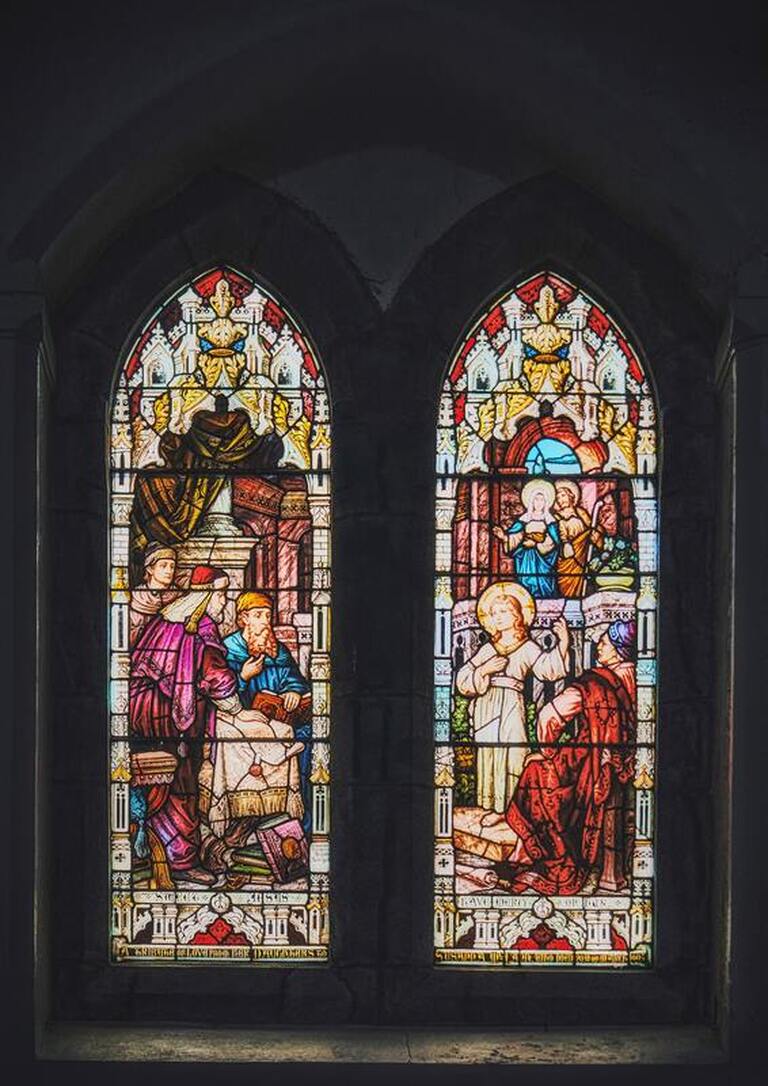
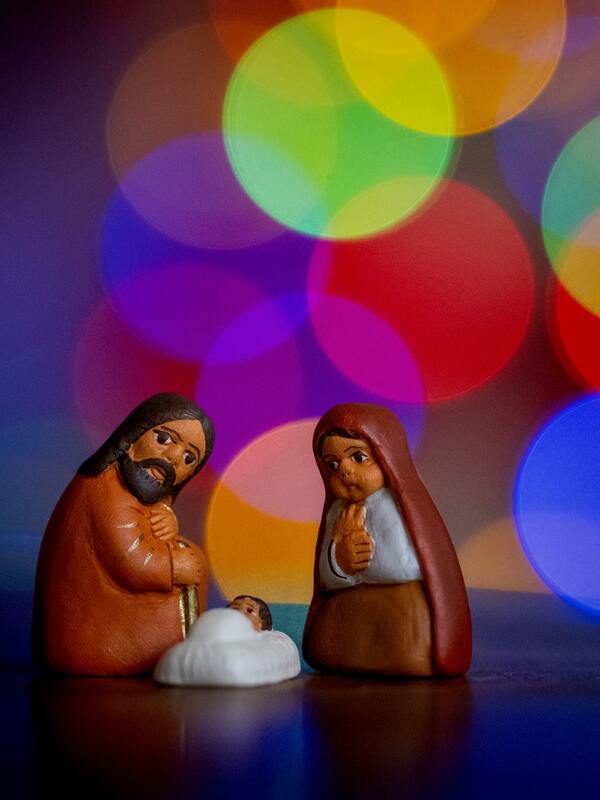

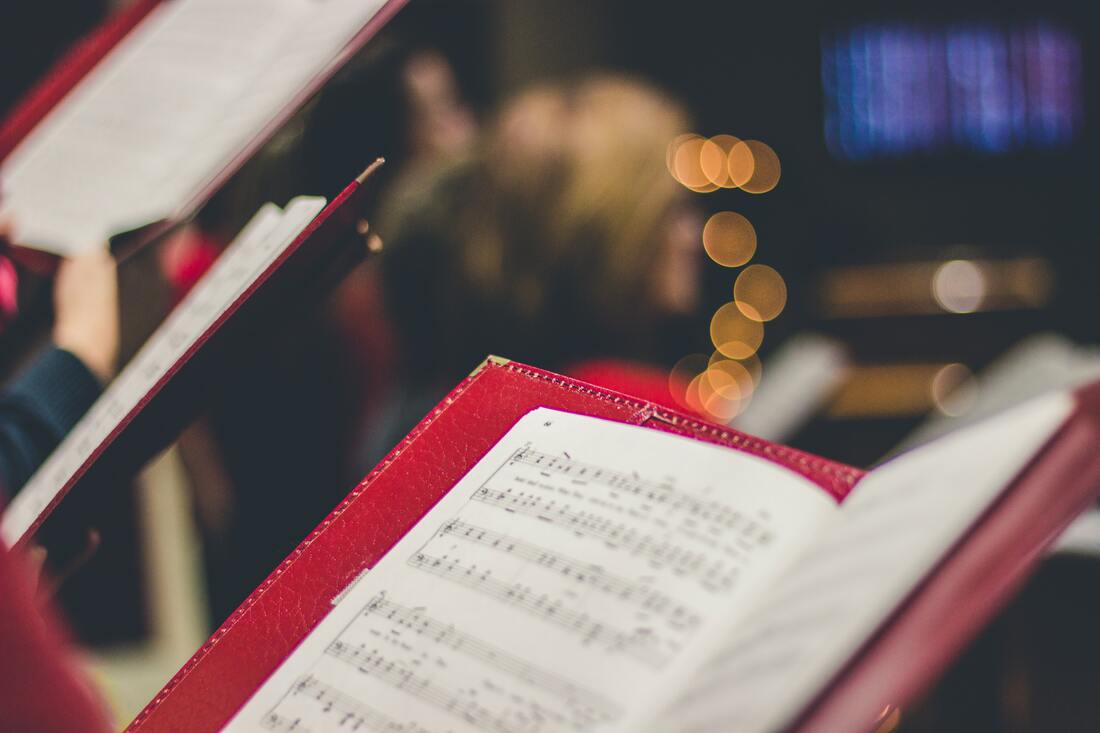
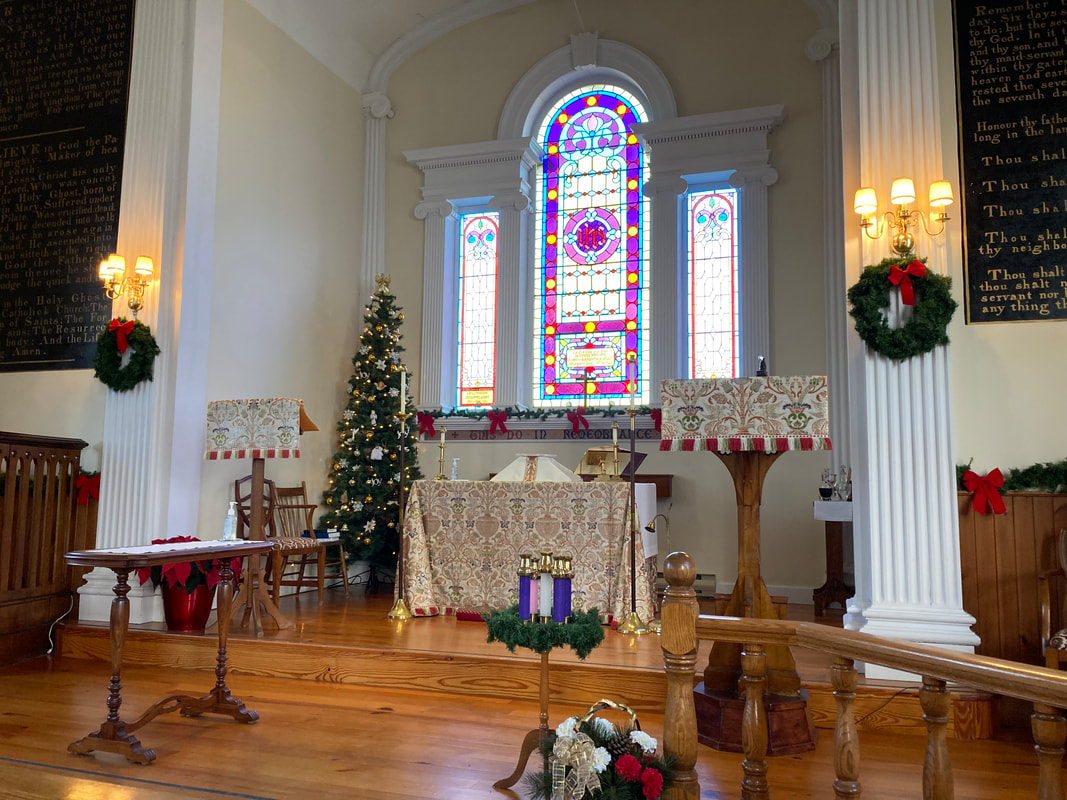



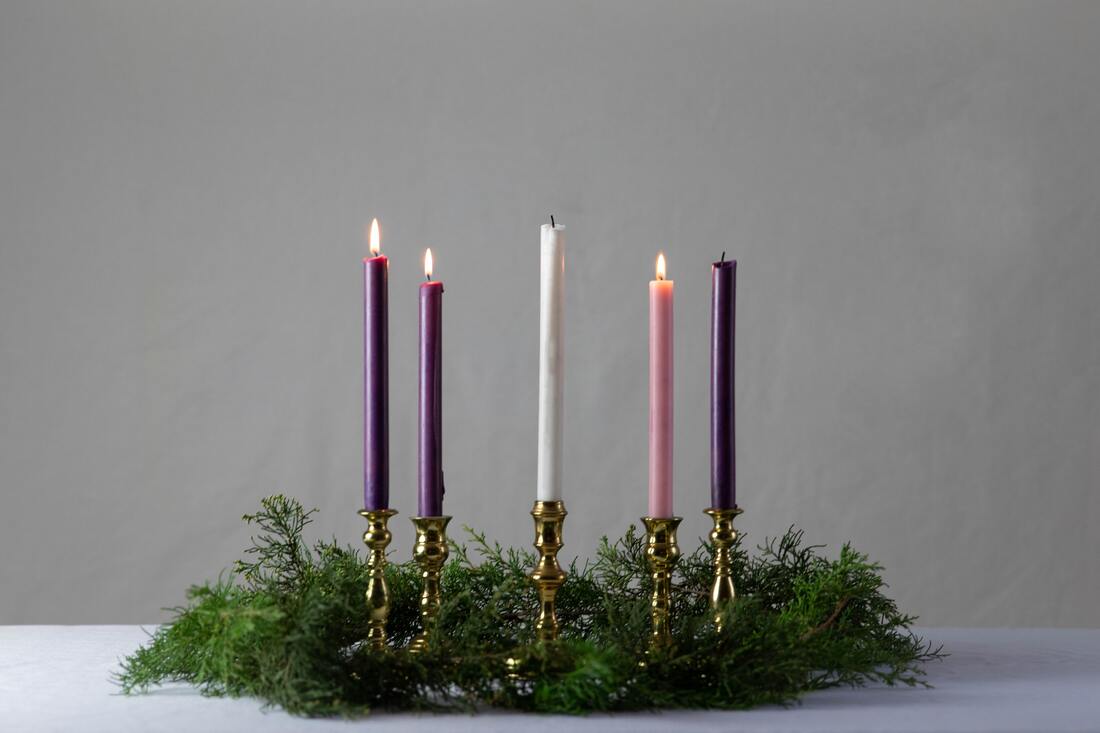


 RSS Feed
RSS Feed
